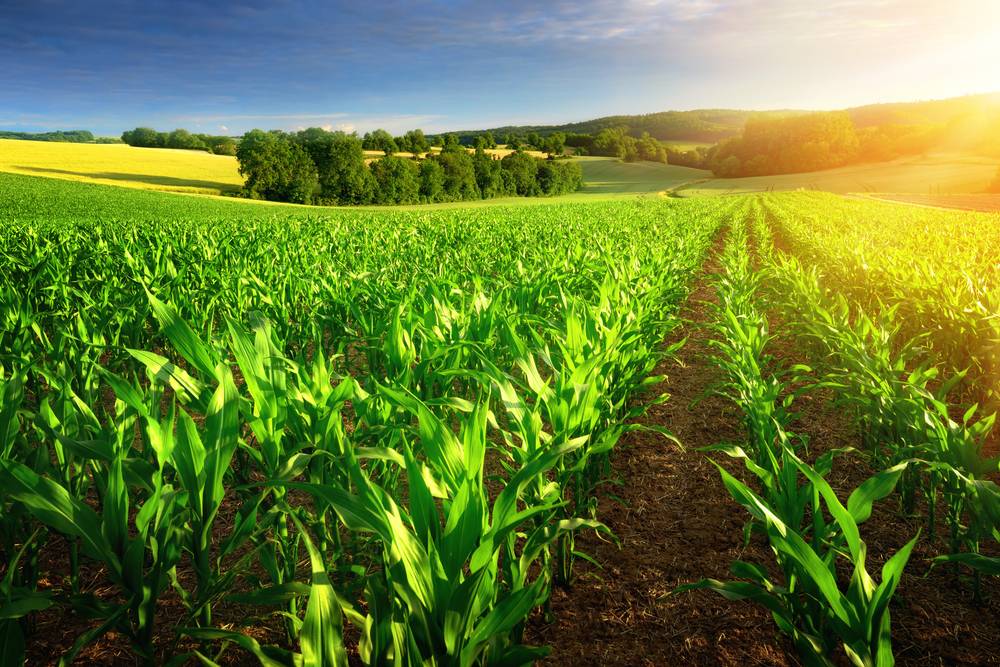 Last updated: April 23rd, 2019 2:13 AM
Last updated: April 23rd, 2019 2:13 AM
National Mission For Sustainable Agriculture (NMSA)
Sustainable agricultural productivity depends on the quality and availability of natural resources like soil and water. Agricultural cultivation can be developed by promoting conservation and sustaining scarce natural resources through appropriate location-specific measures. To meet all the requirements, National Mission for Sustainable Agriculture (NMSA) has been developed to enhance agricultural productivity particularly in areas that focus on integrated farming, water use efficiency, soil health management and synergising resource conservation. NMSA is designed by converging, consolidating and subsuming all ongoing and newly proposed programmes/activities that are related to sustainable agriculture with a special emphasis on soil and water use efficiency, water conservation, soil health management and rainfed area development. The focus of NMSA is to utilise the common resources through community-based approach. NMSA also aims to promote location specific improved agronomic practices through soil health management, judicious use of chemicals, enhanced water use efficiency, crop diversification, progressive adoption of crop-livestock farming systems and integrated approaches like crop-sericulture, agro-forestry, fish farming, etc.Objectives of NMSA
- To make agriculture more sustainable, remunerative, productive, and climate resilient by promoting location specific Integrated/Composite farming systems.
- To conserve natural resources using appropriate soil and moisture conservation measures.
- To adopt comprehensive soil health management practices that are based on soil fertility maps, soil test based application of macro and micronutrients, judicious use of fertilisers, etc.
- To optimise utilisation of water resources using efficient water management to expand coverage for achieving 'more crop per drop'.
- To develop the capacity of farmers and stakeholders with other on-going missions like National Mission on Agriculture Extension and Technology.
- To improve agricultural productivity by mainstreaming rainfed technologies refined through NICRA and by leveraging resources from other schemes and missions namely Integrated Watershed Management Programme (IWMP), Mahatma Gandhi National Rural Employment Guarantee Scheme (MGNREGS), RKVY, etc.
- To set up an effective inter- and intra-departmental/Ministerial co-ordination to accomplish key deliverables of the National Mission for Sustainable Agriculture.
Implementation Strategy
- To promote integrated farming system covering crops, livestock and fishery, plantation and pasture-based composite farming to enhance livelihood opportunities, make sure food security and minimise risks from crop failure through supplementary/residential production systems.
- Popularising resource conservation technologies and introduce practises that support mitigation effort during extreme climatic events or natural disasters.
- Promote effective management of available water resources and enhance water use efficiency through the application of technologies with demand and supply side management solutions.
- Encourage improved agronomic practises for higher farm productivity, improved soil treatment, increased water holding capacity, use of chemicals, energy and enhanced soil carbon storage.
- Create a database on soil resources by conducting land use survey, soil profile study and soil analysis on a GIS platform to facilitate the adoption of location and soil-specific crop management practice and optimise fertiliser use.
- Promote location and crop-specific integrated nutrient management practises to further develop soil health, enhance crop productivity and maintain the quality of land and water resources.
- Involve knowledge institutions and professionals to develop climate change adaptation and mitigation strategies and aid them with necessary farming systems.
- Programmatic interventions depending on the land capability concerning climatic parameters in specific blocks to ensure integrated development through dissemination and adoption of rainfed technologies with a greater reach in disadvantaged areas and location-specific planning by way of coordination, convergence and leveraging investments from other schemes/mission like MGNREGS, IWMP, RKVY, etc.
- State Government engages with reputed NGOs to implement cluster/village development plan in case of limited government infrastructure that is available in the area through a transparent system of selection and defined process of supervision.
- Establish a platform to liaison, review and coordinate the implementation of interventions that are directed in Mission Document of NMSA under the aegis of National Action Plan on Climate Change.
Components of NMSA
Rainfed Area Development (RAD)
RAD adopts an area-based approach for the development and conservation of natural resources with farming systems. The component has been formulated in a watershed plus framework to explore potential utilisation of natural resources base/assets that are available or created through watershed development and soil conservation activities/interventions that are developed by MGNREGS, NWDPRA, etc.Sub-Mission on Agroforestry (SMAF)
SMAF is launched to promote tree plantation on farmland alongside with crops/cropping system. The scheme is implemented in the States that are liberalized transit regulations for selected tree species.National Bamboo Mission (NBM)
A bamboo is a versatile group of plants that is capable of providing ecological, economic and livelihood security to the people. The bamboo and rattan industry of India is worth Rs. 28,005 crores.Soil Health Management (SHM)
SHM aims to promote the location and crop-specific sustainable soil health management includes residue management, organic farming practises by way of creating and linking soil fertility maps with macro-micro nutrient management, appropriate land use depending on the land capability, judicious application of fertilisers and minimizing the soil erosion/ degradation.Climate Change and Sustainable Agriculture: Monitoring, Modeling and Networking (CCSAMMN)
CCSAMMN provides creation and bidirectional dissemination of climate change related information and knowledge by piloting climate change adaption/ mitigation research/ model projects.Popular Post

In the digital age, the convenience of accessing important documents online has become a necessity...

The Atalji Janasnehi Kendra Project that has been launched by the Government of Karnataka...

The Indian Divorce Act governs divorce among the Christian couples in India. Divorce...

When an individual has more than a single PAN card, it may lead to that person being heavily penalised, or worse,...

Employees Provident Fund (PF) is social security and savings scheme for employee in India. Employers engaged...


